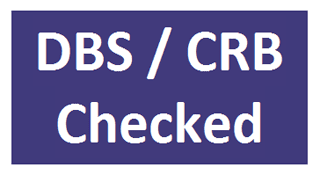


01245 225493
Get in touch with us
Chelmsford Tutors, Chelmsford, Essex
Private Tuition Established 1981
Chelmsford Tutors, Chelmsford, Essex
Private Tuition Established 1981
Get in touch with us 01245 225493



Get in touch with us
HOME / PARENTS & STUDENTS

Each new tutor registered with Chelmsford Tutors is checked in the following manner:)
No.
The tuition time needed, frequency and number of lessons is agreed with the tutor.
This is usually one hour a week.
Tutoring differs from teaching in a school because the skills and approach needed are:
A good relationship tends to develop between tutor and student so that the association is one of friend and mentor.
We usually have three kinds of tutoring arrangements:
Weekly tuition: This regular one-hour tuition is a supplement to a student’s schooling and ensures that the student understands and learns the subject week by week as he/she attends school. It can compensate for insufficient individual attention due to large class size, difficulty in grasping concepts or poor motivation.
Catch-up sessions: These are useful to review the student’s grasp of a concept. They allow the student to “catch up” and to thoroughly understand a topic which was causing problems.
Exam preparation: This is useful before internal exams, mocks or formal exams. The tuition required will depend on the level such as GCSE or A level. Extra tuition is useful to reduce feelings of panic and loss of confidence. Exam techniques can be practised.
Tuition is not a quick-fix solution. The amount of tuition required will depend on the needs, aptitude and effort of each student.
Many students have dyslexia and this is usually not a problem in one-to-one tutoring. If the student has special needs, these should be discussed to see if we can help.
Parents can engage a tutor but if the student does not want to learn or cooperate, tuition will be unsuccessful.
A student who expects the tutor to do his/her homework or coursework will be disappointed. A tutor will not do the homework or coursework for the student but can explain the subject and advise on methods which could be used to complete a task.
Having a tutor is not a guarantee of a good exam pass. The tutor explains the subject to make it understandable and easier to learn but the student needs to study and practise to pass the exam.
A tutor is also not an encyclopaedia or quiz participant who is there just to answer specific questions.
Parents must be at home for the first tutoring session so that they can meet the tutor and discuss the kind of help that is needed, the day and hours preferred and any special circumstances.
An adult should be at home during a tutoring session.
From time to time it is useful for the student, tutor and parent to discuss progress at the beginning or end of a session.
Tutors will need a table and chairs and a quiet area for study. This could be in the kitchen, sitting room, dining room, hall or other appropriate room where the student can concentrate.
The student should have his/her exercise books at home together with some lined paper and a pen.
The tutor may advise the student to buy a revision book, practice papers or download parts of the specification from the Internet.
Mobile phones should be turned off!
Before tutoring begins the tutor and parent will agree an hourly rate and travel expenses, if applicable.
The fee charged will depend on the level of tutoring required. Each tutor will quote an hourly rate.
The tutor will make every effort to attend each appointment on time. If there are traffic hold-ups as the tutor is driving in after-school/evening rush hours and the tutor arrives a little late, the student will always receive the one hour session or alternatively an agreed adjustment to the tuition schedule will be arranged.
If you cancel the day before the tutoring session (24 hours notice) the tutor will try to reschedule for another evening.
If you cancel during the day of the tutoring session you should expect to pay the tutor, as it is impossible to schedule another student for that time slot.
If you decide you want to cancel all tutoring arrangements or want to change the frequency, the parent (not the student) informs the tutor.
Each tutor is independent and sets his/her own fees. Currently tuition charges generally fall within the following fee scale.
AS/A Level £35 to £45 per hour
GCSE £30 to £40 per hour
Primary / 11+ £30 to £35 per hour
If the tutor is travelling to the student after school, he/she may charge a petrol/travel time charge. This is usually between £1 and £4 depending on the distance and time taken to drive in rush hour traffic. Ultimately it is for the client to agree the fee with the tutor. To minimise travelling and expense, we try to fit the best qualified and nearest tutor to meet the client’s needs. If a qualified tutor lives a long way from the client they will try to find a sensible, mutually agreed arrangement e.g. tutor or student visits for a longer session when required.
© Copyright 2015 – 2024. Chelmsford Tutors
Covering: Chelmsford, Brentwood, Billericay, Witham, South Woodham Ferrers, Braintree, Maldon, Great Baddow, Essex